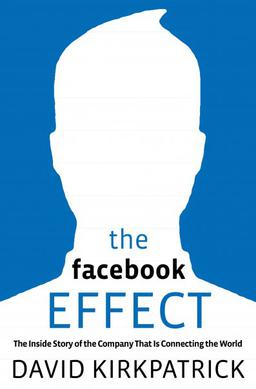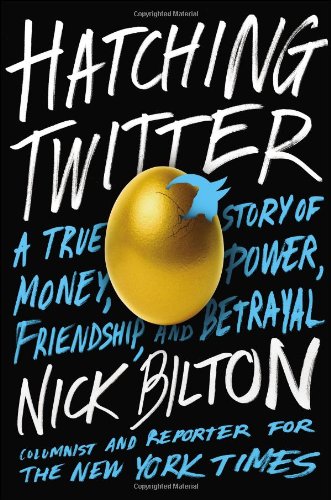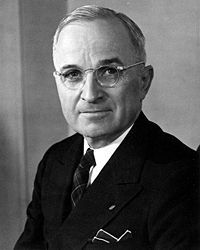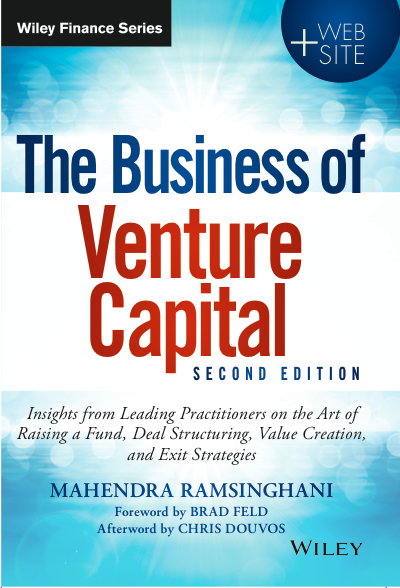I always thought it's best to keep our options open. But something Tim Ferris said helped me realize that limiting our options can be okay.
How to make a bachelor degree worth it
In my last post I shared my opinion that an MBA is only worth it in certain circumstances. It’s not that an MBA is bad - it just comes with a high cost (both money and time). Most people can find similar career benefits in other ways at a much lower cost. A LinkedIn comment on the post got me thinking about bachelor degrees.
I want to state up front that I believe a 4-year degree is more broadly beneficial than an MBA. It’s not automatically worth it for everyone, but I think it’s a good choice for many.
This post is about how to make a bachelor degree worth it. I refer to bachelor degrees, but the same principles apply to any post-secondary education program.
First, don’t view a degree as a golden ticket
For many career paths, a bachelor degree is a rite of passage and not a differentiator. A bachelor degree does not guarantee a high-paying job that leads to a lucrative career.
In fact, most entry-level jobs are anything but lucrative. Average starting salaries for most degrees range from around $30,000 to $60,000. This is hardly enough to support a large student loan payment.
Second, don’t spend like you’re buying a golden ticket
The single biggest I problem I have with bachelor degrees is the debt that most students become chained to.
Some millennials get headlines for demanding student loan forgiveness and free school.
How ridiculous!
Yes, rising costs are a problem, but no one forced them to rack up student loans! No one forced them to use student loans to fund a comfortable lifestyle in addition to books and tuition. No one forced them to avoid a job while going to school. No one forced them to go to a high-cost private or out-of-state school to a pursue a degree with low market value.
Students are not supposed to be comfortable! They’re supposed to live in small, run-down apartments or dorm rooms eating rice and beans on hand-me-down furniture. They’re supposed to drive a beater if they have a car at all.
They’re supposed to have a job at the same time, which leads me to my next point…
Third, don’t put off work experience until you graduate
Working while going to school has at least three benefits.
If combined with living inexpensively, working 20+ hours per week during the school year and 40+ hours per week in the summer should allow you to get through school without debt.
Your work experience will prepare you for your post-graduation career and set you apart from your peers going for the same entry level positions.
Working teaches valuable time management skills. The common excuse for not working is, “I need to focus on my studies.” The reality is most college students don’t have the discipline or stamina to study every spare minute outside of class. Work provides a break from school that would otherwise be spent playing video games or otherwise wasting time.
And by working, I don’t mean settling for flipping burgers or cleaning bathrooms for a few hours per week (although any work is better than nothing). Be aggressive about finding work as closely related to your preferred career path as possible.
When I started university, I immediately got a job working events for minimum wage. I saw it as a way to eat and pay rent while looking for a better job. By the end of my first semester I found a job running an online class that paid almost double minimum wage. The job wasn’t posted - I found it by approaching all of the professors in the program I wanted to be in (and hadn’t applied for yet) and asking if they knew of any job opportunities.
That was great experience and paid well, but it wasn’t directly related to my degree. Three semesters later I found a job at a local software startup where I worked for my final two years at almost three times minimum wage.
This work experience not only allowed me to get through university without debt, but it also set me apart from many of my peers who were also being recruited by the Big 4 accounting firms.
In summary, I believe a four-year degree can be worth it for many people. But only if you intentionally make it worth it.
It’s not the diploma that matters - it’s the person you become while earning that diploma.
Question: How else can you make a bachelor degree worth it?
Is an MBA worth it?
My humble opinion: no. I could end my post there, but let me explain (and soften my opinion a little).
An MBA is not a golden ticket to a high-paying job that leads to a lucrative career. In the end, it’s who you are, who you know, and the results you produce that determine your career success.
An MBA will accelerate network-building and give you access to recruiters. It will give you experiences and knowledge that will make you a better person and prepare you to generate results.
But it comes with a high cost: 18-24 months of lost salary, paused career advancement, and tuition and fees. Could you get similar benefits without the cost?
The cost might be worth it if you meet the following criteria:
- You want to make a drastic career change into an area you lack knowledge and contacts.
- You are pursuing a career path where an MBA is almost required and you don’t have accomplishments that would make up for not having one. For example, private equity and venture capital partners who raise money from institutional investors often have big-name MBA’s or big business wins (built and sold a company for enough that they don’t need to work).
- Time and cost aren’t an issue and you just want an MBA. There’s nothing wrong with that.
I can’t think of any other good reasons to get an MBA.
I think most people would be better off by making learning and relationship-building a life-long and intentional pursuit.
By targeted I mean being relentless about learning everything you can about the industry and role you are in (and aspire to). I mean saying yes to every possible opportunity, large or small, and doing all you can to be an absolute rock star. Good people are hard to find. Be one of those good people.
Speaking of education: you can learn as much or more by building your own custom education plan. The following are some options:
- Executive education programs offered by many business schools. These aren't full MBA's but short, intensive courses on specific topics. They tend to be expensive but not nearly as much as a full MBA.
- Massive Open Online Courses (MOOCs). Many schools offer the same courses that tuition-paying students get for free or cheap online. I took a course from Stanford for free on scaling startups. It had the same professors and content as a tuition-paying Stanford student. I just didn’t get the credits.
- Read books. MBA students read a lot of books. Decide what you want to learn and find the best books on the topic. Set a goal for how many books you want to regular read. I read 2-4 business or personal development books per month.
- Listen to books. I love Audible.com. I can get through at least two books per month while doing things I have to do anyway: driving, exercising, cleaning my office or garage, etc.
- Podcasts. Learn from experts who are actually doing what you’re trying to do. Some of my favorite business podcasts include The Entreleadership Podcast, EOFire, This Week in Startups, Entrepreneurial Thought Leaders, and even the $100 MBA (daily 10-minute business lessons).
- On the job experience. The best MBA can’t match high-quality, on-the-job experience. Volunteer for the toughest jobs. Intentionally target opportunities that will help you reach your goals. And as I mentioned, be a rock star no matter what the role.
Getting an MBA may be a good option for some people. But if you're considering an MBA, think carefully about whether or not the costs are worth it.
Consider whether or not you can get the same or greater benefits by being more focused and intentional in your on-the-job experience and off-the-job education.
Question: What criteria would make an MBA worth it?
How Declining Marginal Costs Will Affect Your Future
How many products and services do we use for free (legally) that cost others a significant amount to develop? Look at your phone. Free apps probably far outnumber paid apps. How much do you pay for your personal email service? How many websites do you pay to access? What was your long distance phone bill last month?
Compare this to 25 or 50 years ago. Not much was free except a neighbor doing a good deed. I’m not aware of free software that long ago. Over the holidays my extended family brought up memories of long distance phone bills in the hundreds of dollars per month.
What has changed?
The difference is marginal cost. Technology has driven the marginal cost of many products to zero or near zero. The marginal cost is the cost of providing one additional unit (not taking into account fixed costs).
Software as a Service (SaaS), or software delivered over the Internet, is a perfect example of a near-zero marginal cost product. Good software can take many millions of dollars to develop and support (fixed cost), but the cost of providing that software to one additional person is almost zero.
Declining marginal costs have significantly impacted our society. Overall, I believe the impact has been positive, but it has upended entire industries.
Consider the music industry. The zero marginal cost nature of digital music decimated artists and music labels who profited from selling CD’s. In the days of Napster, many argued that free music didn't hurt anyone because downloading a song didn’t cost the artist any extra. The industry has adapted, but it is forever changed.
None of this is news to you. Even if you didn’t think of the changes in terms of marginal cost, you can see how it affects your life now.
But have you thought about how zero marginal costs might affect your future? Investors need to consider what industries may decline and what opportunities will rise in their wake. Business owners and managers need to consider how this trend will affect the industry they operate in. Students need to consider what career paths will be in highest demand and what will become obsolete.
I have been thinking about this concept since reading the book, The Zero Marginal Cost Society, by Jeremy Rifkin. The author extrapolates the trends toward zero marginal cost to other industries. He argues that almost every aspect of our lives is trending this direction. Over time, almost everything we need will have a near-zero marginal cost.
He even argues that zero marginal costs will eventually relegate capitalism to a small niche. Capitalists won’t be willing to invest in significant fixed costs when the investment can’t be recouped through free or near-free products.
It almost sounds socialist, but the author isn't arguing that government needs to take over and provide the fixed costs for everything we need. Rather, he argues that the abundance made possible by zero marginal costs will lead to collaboration and cooperation between groups of people to provide for the fixed costs.
Consider the following examples of how near-zero marginal costs are changing society:
Open source software projects like Linux and Mozilla have brought together thousands of people, in a remarkable unstructured way, who donate their time and expertise to build great products that millions can enjoy for free.
Online education is being provided inexpensively and free by the same organizations that charge tens of thousands of dollars per semester for the same education in a classroom. I recently took a massive open online course (MOOC) on scaling startups taught by two Stanford business school professors. The class was free for thousands of students. It could be free because the online delivery platform and class curriculum was already developed. Providing the class to one extra student has no cost.
3D printers are barely beginning to show their potential. 3D printers can create body parts, houses, cars, and almost anything you can think of with minimal raw material cost. Why pay up front for a container of trinkets from China and wait weeks for delivery when you can print only what you need right from your office?
Solar energy is basically free after the equipment cost. The high equipment costs make for a long payback period, which has limited adoption. However, the speed of technology improvement and price decrease is rivaling what we have seen with computing power.
The sharing economy provides access to expensive assets for a small marginal cost. In urban areas, services like Uber and Zipcar meet personalized transportation needs for a small cost per ride. Airbnb and VRBO provide convenient access to a wide variety of properties. My family just went in with two other families on renting a house near Disneyland. We have access to a good-sized house with a bed for every person for less than half of what we each would have had to pay for a small hotel room. Access is becoming more important that ownership
I don’t know if the radical societal changes will come to pass as completely and as quickly as the author predicts. However, there is no question that many aspects of society have changed and will continue to change because of declining marginal costs. It would be wise to consider how these changes will affect our investments, our careers, and our daily lives.
Question: In what ways do you think zero marginal costs will affect our future?
Key Differences Between Canada and US Tax - Capital Gains
The US-Canada border is one of the friendliest in the world. As a result, many people move back and forth across the border. I am one of those people. I grew up in Canada, went to university and worked in the US, moved back to Canada for a few years, and now live back in the US.
It’s important for people considering moving across the border to understand the difference between the two countries' tax systems and other factors impacting cost of living. Although the principles in each country are similar, the implementation is quite different.
I’ve been writing a series of posts on the topic, including tax agencies, impact of moving, filing status, and income tax rates; deductions and credits, payroll tax; and health care and other insurance.
In this post I’ll compare capital gains.
Put simply, capital gains occur when you sell certain property for more than you paid for it. This type of property is usually purchased for the intent of selling for a profit and/or generating income. For example, a rental property.
Capital gains are taxable. Both countries tax capital gains more favorably than regular income, but each countries handles it quite differently.
In Canada, you only include half of your capital gain in your taxable income. For example, if you earn a $100,000 salary and sell a rental property for $20,000 more than you paid for it, your tax is calculated on $110,000 of taxable income (only $10,000 of the capital gain is included). This means the tax rate on capital gains in Canada is half of your marginal tax rate (the rate top rate bracket your income falls into).
It doesn’t matter how long you owned the property for. It’s treated the same whether you sold it 1 day or 50 years after you bought it.
In the US, capital gains tax is more complicated.
The full amount of a short-term capital gain (property held for less than 1 year) is taxed as regular income. Long-term capital gains are taxed at a lower rate than regular income, but the amount depends on your tax bracket. Long-term capital gains in the 10% and 15% tax bracket aren’t taxed at all, those in the highest tax bracket are taxed at 20%, and everything in between is 15%.
Capital losses, obviously, are the opposite of capital gains. A capital loss is when you sell property for less than you paid for it.
In Canada, capital losses can only be used to reduce capital gains. If capital losses in one year are more than capital gains, you can use it to reduce capital gains in up to three previous years or any future year.
In the US, capital losses can reduce capital gains and up to $3000 of regular income. If losses are $3000 more than gains, you can carry them forward to future years.
For more information from the tax agencies’ websites, go here for Canada and here for the US.
Disclaimer: I am a CPA in both Canada (Chartered Professional Accountant) and the US (Certified Public Accountant), but I am not a tax expert and this post is not meant to be professional advice. My goal is not to write a definitive guide. Rather, my goal is to give you a starting point for your own further research and/or discussions with your tax advisor.
My Favorite 10 Books This Year (So Far)
I love books. I usually get through two or three books each month, mostly by listening to audio while doing other things. My favorite books are biographies (including stories of starting and growing companies). I also enjoy self-improvement / productivity, and once in a while I’ll throw in fiction to get a break from thinking too much.
These are the top 10 books I’ve consumed this year (so far):
Biographies
1. Elon Musk: Tesla, SpaceX, and the Quest for a Fantastic Future by Ashlee Vance. Elon Musk is incredibly inspiring. He’s building two revolutionary companies at the same time. It was interesting to learn about his struggle to get where he is today, and his future ambitions are mind-boggling.
2. The Wright Brothers by David McCullough. A year ago all I knew about the Wright Brothers was they were the first to fly a manned aircraft. Last year I visited their memorial at Kitty Hawk, which was fascinating. I was excited when their biography was released a few months after that visit.
Their unwillingness to give up inspires me the most. They spent many years learning about flying, designing their flying machines, and testing a number of iterations. During much of that time they didn’t see much hope for success, but they never lost sight of their goal.
3. Digital Gold: Bitcoin and the Inside Story of the Misfits and Millionaires Trying to Reinvent Money by Nathaniel Popper. This is a fascinating look at the origins and development of the digital currency, Bitcoin. I have heard the hype about Bitcoin over the last few years, but I had no idea how it works. Although the technology goes over my head, I at least have a basic understanding now.
4. The Innovators: How a Group of Hackers, Geniuses, and Geeks Created the Digital Revolution by Walter Isaacson. This book provides an in-depth look at how computers and the Internet were created. It reads like several biographies in one as the author describes the key players who pioneered this industry.
Self-Improvement
1. Essentialism: The Disciplined Pursuit of Less by Greg Mckeown. This is one of two books I keep downloaded in my Audible app so I can listen multiple times (the other is How Will You Measure Your Life by Clayton Christensen). This is near the top of my all-time favorite list. It has changed my thinking about how to live my life more than almost any other book.
I struggle with implementing an essentialist life, which is to focus my time on only the few most important activities. But I try to work toward that ideal, and listening to it frequently helps to keep me on track. It’s only about 6 hours long, or 3 hours on double time.
2. The Go-Giver by Bob Burg and John David Mann. I wrote a separate post about this book. The authors package the five laws of stratospheric success into a brief, engaging, and easy-to-read parable. The five laws are value, compensation, influence, authenticity, and receptivity.
3. Procrastinate on Purpose: 5 Permissions to Multiply Your Time by Rory Vaden. Although not quite at the level of Essentialism, this book has also changed my way of thinking about time management. I wrote a book review in a separate post.
Other time management strategies focus on efficiency and prioritization. It is about allocating our 168 hours per week to get as much of your most important activities done as possible. Instead of efficiency and prioritization, Vaden describes how to multiply our time. In essence, it’s about spending time on things today that will give us more time tomorrow.
Fiction
1. No Country for Old Men by Cormac McCarthy. I first heard about this story when the movie adaptation was nominated for several academy awards. I thought if the movie is good, the book must be better. I was not disappointed. I could not stop listening through the fast-paced action and the author’s unique story-telling style.
2. The Hot Zone: The Terrifying True Story of the Origins of the Ebola Virus by Richard Preston. This book technically isn’t fiction, but I include it here because it reads like a story. I would sleep better if it was fiction. Hearing about the gruesome effects of the Ebola virus makes me think twice about touching anything. Regardless of it’s potentially scarring effect, the story is interesting.
3. The John Puller Series by David Baldacci. This is a three-book series: Zero Day, The Forgotten, and The Escape. The books are the adventures of John Puller, a combat veteran and military investigator. The events and prose can be a little over the top, but I enjoyed the suspense-filled stories.
Question: What are your favorite books of the year?
5 Reasons Why All Leaders Are Readers
Harry S. Truman said, “not all readers are leaders, but all leaders are readers.” I love reading both because it’s enjoyable and it plays a critical role in helping me become a better leader. I normally consume at least two books per month, mostly as audiobooks through Audible.com. I’m usually in the middle of three or four books so I can choose what I feel like at any given time, such as a religious book for Sunday, a fiction book for when I want to relax, and one or two non-fiction books for when I’m motivated to learn.
Here are five reasons all leaders are readers:
1. Reading elevates us above our current situation
It’s easy to get bogged down in our day-to-day lives, and reading elevates us above the daily grind. It can inspire us with stories of great accomplishments. It can give us new ideas. It allows us to step back and view the forest while day-to-day we only see a few trees.
I enjoy biographies for this reason. I’ve recently read Winners Dream, the autobiography of SAP CEO Bill McDermott, and The Innovators, the story of the computer and Internet pioneers.
2. Reading multiplies our experiences
We don’t generally experience life very quickly. Building anything of value as a leader takes time, and the process is typically challenging and messy.
Think of building a family. It takes almost 20 years to raise a child, and we only get a limited number of children to practice on. Older couples will say it takes a lifetime to build a successful marriage, and again, opportunities to practice are limited. However, by reading we can learn from the experiences of virtually unlimited numbers of successful parents and married couples.
The same applies to leading in business. We only have time to lead in a handful of business during our career, but by reading we can learn from the experiences of an unlimited number of leaders.
I wrote a blog post about the power of learning from others experiences through stories.
3. Reading allows us to spend time with smart people
You may not be able to have lunch with Michael Hyatt, Andy Andrews, Dave Ramsey, Jim Collins, or Peter Drucker (especially because he’s passed on). But you can spend as much time with them as you want by reading material written by them.
I used to get frustrated with reading. I would read a lot of books, but I didn't feel like I was retaining much of what I read. Michael Hyatt changed my outlook. In one of his podcasts he mentioned that he doesn’t read with the intent of retaining much. He reads to spend time with smart people.
4. Reading can quickly build our expertise
Without reading, our expertise will be limited to our direct experiences. We don’t experience life quickly, so our direct experience are limited.
I wrote a blog post about ways learn a new industry. The post was inspired by the wealth of knowledge I gained from reading the book, The Business of Venture Capital.
I’ve been working in venture capital for over three years now, but my experience is limited to my circumstances, such as the stage of our VC fund, the companies we work with, and my role. However, by spending a few hours reading The Business of Venture Capital, I was able to expand my expertise to all areas of venture capital.
Of course, book learning is not as good as hands-on experience, but it may open the door to opportunities for hands-on experience and make us more effective when we get the opportunity.
5. Reading gives us an escape
When thinking about reading for leaders, we normally think about non-fiction, such as leadership principles, self-improvement, biographies, etc. While I primarily read non-fiction, I believe it’s important to also read fiction.
Fiction reading provides an escape. It helps you mentally disengage from your circumstances, which facilitates rest and recovery. When you come back to real life, you can face your challenges with new ideas and renewed energy and focus.
If you want to be a leader, you must be a reader!
Question: In what ways has reading helped you become a better leader?
5 Tips for Making the Most of Podcasts
I love podcasts. They allow me to consume a huge amount of educational and entertaining content during times my brain would otherwise be underutilized, such as while driving or cleaning out the garage. Podcasting is a form of audio broadcasting on the Internet. Think of it as on-demand and free radio programs. Podcasts also come in video format, but this post is focused on audio-only podcasts.
I first started listening to podcasts in 2005, soon after they became available in the iTunes store. I discovered the Dave Ramsey Show and diligently synced my iPod with my laptop every day via cable to get the newest episode for my commute.
Podcasting has exploded in popularity since then, and new technology has made listening to podcasts a much easier and more enjoyable experience. Instead of syncing with my laptop daily, I use the Downcast app, which automatically downloads new episodes of the 25-30 podcasts I listen to regularly.
Here are 5 tips for making the most of podcasts:
Most podcast players allow you to change the playback speed. Downcast has 0.5, 1, 1.25, 1.5, 2, and 3x speeds. I listen to most podcasts at 2x, which allows me to consume twice as much content as regular speaking speed.
If you haven’t listened to sped-up content, it may sound too fast at first, but it doesn’t take long to get used to. Our brains can listen a lot faster than we can speak. I’d like to listen at 3x speed, but I find that content often gets skipped.
I listen to so many different podcasts that I need a way to track and prioritize, which is where playlists come in.
I make sure I listen to every episode of a few of my favorite podcasts, such as Michael Hyatt, Andy Andrews, and Entreleadership. I have a Favorites playlists that all new episodes automatically appear in, and an episode disappears once I listen to it.
I enjoy some podcasts that are too long and frequent to listen to all episodes. For example, the Dave Ramsey Show and Entrepreneur on Fire have daily 30-45 minute episodes. I have separate playlists for these podcasts, and I listen to them when I’m done with my Favorites playlist.
Playlists can also have customized settings. I want some podcast episodes to disappear after I listen to them, and others I listen to more than once. I listen to most at 2x, but I prefer some at 1.5x. For example, I listen to LDS General Conference talks/episodes more than once during the 6 months in between sessions, and I prefer to listen at 1.5x.
It’s important to give our minds down time. We need time to think, sometimes about nothing. But we also have a lot of time we can educate ourselves while doing other things. I use my Bose bluetooth to listen to podcasts and audiobooks whenever my brain doesn’t have to be fully utilized.
For example, I listen while getting ready in the morning, driving (unless I’m with someone and want to be good company), running, biking, and cleaning the house, garage, or yard.
Thousands of podcasts are available, so it’s tough to narrow it down to the best ones for you. Many websites and blogs in your areas of interest will provide recommendations for the best podcasts.
Click here to see all of the podcasts I regularly listen to.
iTunes has top 100 podcast lists in several different categories. I often review the business, health, and technology categories to see what’s new and popular.
As you can tell, I’m a huge fan of podcasts. They are a great way consume educational or entertaining content while doing other things that don’t fully occupy your brain.
5 Ways to Learn a New Industry
I work with a venture capital fund and several startups, and I have had to learn a completely new industry with every new project. I am involved with building materials, telecommunications infrastructure, clean energy, and mattresses, to name a few. Lately I have been working especially hard at learning the venture capital industry. As part of this effort, I am in the process of reading The Business of Venture Capital by Mahendra Ramsinghani. It is an excellent, comprehensive look at all aspects of venture capital. This got me thinking about the approach I have taken to learning a new industry as quickly as possible.
Many people spend a lifetime learning a particular industry. However, it’s common to change career direction many times. While nothing can replace many years of hands-on experience, it’s possible to accelerate the learning process.
Here are some tips and tricks for scaling the learning curve in a new industry:
1. Read books Books are a powerful way to acquire new knowledge and insert yourself into new experiences. Of course, reading is not a perfect substitute for actually being there, but being there takes time, opportunity, and luck.
In a previous post I talk about my experience listening via audio book to 4 incredible stories about the founding or turnaround of Twitter, Facebook, Blackstone Capital, and Ford. For $44 and two weeks while doing things I had to do anyway, I experienced 50 years of building or turning around 4 multi-billion-dollar companies.
2. Follow trade publications Every industry has trade publications, and they are great ways to learn and stay current on new developments.
The mattress industry was new to me, and I work with industry veterans with 20-30 years of experience. Even though I can’t match their years of experience, I have become familiar with the industry by regularly reading the two main trade publications, Furniture Today and Bedtimes.
3. Attend conferences and trade shows Gatherings like this can be challenging to navigate, especially for an introvert like me. But every industry has conferences and trade show where the who’s who of the industry gather in one place. At these events you can learn from speakers, panel discussions, and product/service booths.
Building your network of contacts is just as important as learning an industry, and conferences are an efficient way to build your network.
Attending the semi-annual Las Vegas Market for the home products industry has accelerated my industry knowledge and contacts.
4. Participate in networking events Most industries have local get-togethers for networking and learning.
I recently attended a networking event in Salt Lake City that I found very valuable. It was organized and attended by professionals in similar industries and career stage. The organizers invited a high-profile speaker a few years ahead of us in experience and success. We were able to build our contacts with each other and learn from the speaker's experience.
You can find networking events through Internet searches or LinkedIn, for example. If you can’t find relevant networking events, organize one yourself! There’s no better way to get to know people and build credibility in an industry than to be a leader.
5. Visit the front lines It’s great to gain experience in the board room or in executive meetings, but the real work happens on the front lines: stores, call centers, factories, etc. It’s impossible to understand an industry without understanding the front lines.
When I first became the CFO of a building products manufacturer, I spent a lot of time working alongside the production team in the factory. This was challenging, but it was the fastest way to learn the processes and get to know the team. Being on the floor gave me the understanding I needed to made process improvements that cut labor costs in half.
The speaker at the Salt Lake City networking event I mentioned talked about the turnaround he led of a local company. I was with a colleague, and we happened to be driving by this business on the way to our next meeting. We stopped in and talked to one of the front-line employees who was there during the turnaround a few years ago.
We learned a lot as he told us about his experience, including the methods used to drive the turnaround. It was most instructive to hear the gratitude and respect in this employee’s voice as he spoke of that experience.
Go and learn! There’s no reason to be afraid of learning a new industry. Of course, it’s difficult to replace years of experience in a short amount of time, but you can use these tips and tricks to dive into a new industry and become a veteran in a short time.
Question: What approach have you taken to learning a new industry?
4 Reasons Story-Telling is so Powerful
Over the past two weeks I have binge-listened to books that tell the story of startups and turnarounds. Using the the Audible app on 3x speed and my Bose Bluetooth earpiece, I have listened to Hatching Twitter by Nick Bilton, The Facebook Effect by David Kirkpatrick, American Icon by Bryce Hoffman (the Ford turnaround), and King of Capital by John Morris and David Carey (story of Blackstone Capital). (See the end of the post for similar books I've read recently.)




Each of the authors are intimately acquainted with the businesses they wrote about due to spending time with the company for many hours over many years. It’s amazing that we can take advantage of such extensive work for such a minimal cost.
I was drawn into these stories so deeply that I listened at every available opportunity. I listen while getting ready in the morning, driving, mountain biking, cleaning out the garage, searching for items on my list in Costco, and relaxing before going to sleep. Obviously, I thoroughly enjoyed these books.
As I listened I thought about why I enjoyed these books so much more than other books I have read recently. I realized it is the power of story-telling. It is much more enjoyable and effective to learn principles from stories rather than lists of principles themselves.
Sometimes we get impatient and try to cut out the fat and get right to the meat. But it’s the fat that gives the meat flavor and substance. Here are 4 reasons why story-telling is so powerful.
1. Enjoyment A good story is enjoyable to listen to. We are more engaged and attentive when we are enjoying ourselves. We’re also more likely to spend time doing things we enjoy. There’s no way I would listen to four dry books in two weeks. I wouldn’t be motivated to listen at every opportunity.
I tend to start many more books than I finish. Even if the content is valuable, I have a hard time continuing if I’m not enjoying the content at the same time. There are so many valuable AND enjoyable books out there, so why would I waste my time?!
2. Motivation Stories are motivating because they take the mystery out of an incredible result. They tell us how characters get from A to B, and in most cases, the characters are just normal people.
Of course, the stories that get published are the sensational ones. If we’re not careful, we can become discouraged and demotivated by our mundane lives and meager accomplishments. Many stories are written about those who start billion-dollar companies, but only a tiny percentage of companies reach this milestone.
The rest of us struggle along with our more normal lives, but we can be motivated by these stories to reach our potential by making the most of our circumstances and opportunities.
3. Learn from others mistakes Even stories with the most sensational results include missteps along the way. We can learn to avoid the same mistakes as we create our own story.
The Twitter team worked together on a failing podcasting company before pivoting to create Twitter. The company was terribly mismanaged all along the way, but they managed to hold it together and build a multi-billion dollar company that has changed the world. The book details the mistakes that could have destroyed the company.
4. Learn what worked in real situations We can learn from mistakes, but perhaps more importantly we can also learn what led to the sensational results.
We need to be careful not to assume that whatever worked in the story will also work in our situation. But if we listen to enough stories, we can build up a bank of experience in our heads that will help us make better decisions in our own lives.
Conclusion
Stories are a powerful way to teach and learn. Of course, reading a story is not a perfect substitute for actually being there. However, being there takes time, opportunity, and luck. For $44 and two weeks while doing things I had to do anyway, I experienced 50 years of building or turning around 4 multi-billion-dollar companies.
Question: What startup or turnaround stories do you recommend?
* Other similar books I have read or listened to over the last few months include:
- Creativity Inc by Ed Catmull (Pixar)
- The Everything Store: Jeff Bezos and the Age of Amazon by Brad Stone,
- In The Plex: How Google Thinks, Works, and Shapes Our Lives by Steven Levy
- eBoys: The First Inside Account of Venture Capitalists at Work by Randall Stross
- The Snowball: Warren Buffett and the Business of Life by Alice Schroeder
How to Automate Your Education
I try to use systems in all areas of my life. Systems could also be called habits, and they automate routine tasks that lead to important outcomes. Systems maximize consistency and minimize time and energy. Systems allow us to focus more on the outcome than the routine tasks that get us there.

I use systems to automate my ongoing education. This makes sure I continually educate myself while not being overwhelmed by the tsunami of information readily available today.
Formal education should just be the beginning, and education should not be limited to our profession. There is much to learn about health and fitness, relationships, travel, sports, and anything else applicable to your life.
My education systems revolve around podcasts, content aggregators, audio books, eBooks, and magazines.
Podcasts. Podcasting is a form of audio broadcasting on the Internet. I use the Downcast app to automate my podcast system. I regularly listen to 25-30 podcasts, and some of my favorites are Entrepreneur on Fire, Entreleadership, and This is Your Life with Michael Hyatt.
I pipe podcasts into my ear through my Bose bluetooth ear piece whenever possible, such as while driving, riding my bike, or doing mindless tasks around the house or in the yard. Podcasts are my favorite way to consume content, and I’ll write a future post dedicated to how I use podcasts.
Content Aggregators. Flipboard is my favorite aggregator. It is an app that aggregates into magazine format all of the web content you want to follow. You can connect to blogs like an RSS reader, but you can also connect all of your social media feeds. I connect to some of my favorite blogs to make sure I don’t miss anything. However, I find that most of the content I want to follow gets tweeted or otherwise posted via social media.
Almost every night I spend about 30 minutes flipping through hundreds of items. I’ll read content that catches my attention, and I use Buffer’s email feature to post my favorites to my social media feeds.
Audio books. I use the Audible.com app to consume at least 2 books per month. I subscribe for about $22/month, which gives me 2 credits. Most books are 1 credit, so the subscription saves a lot of money given that most books are $15-30 each. As with podcasts, I use my ear piece to pipe books into my ear whenever possible.
eBooks. I use the Kindle app on my iPhone and iPad to read books. I prefer to consume books by audio because I can do other things at the same time. However, for some books I want to take more time to read, ponder, and take notes. In some cases, books I want to consume are not available in audio format.
Magazines. I get most of my periodical-type content through Flipboard, but I regularly read some of my favorite business magazines using the iPad Newsstand. These include, in order of priority, Forbes, Inc, Entrepreneur, Success, and Fortune. I’ll usually catch up on magazines in the evenings if I have extra time after getting through Flipboard or on the weekend if I have extra time to read.
Educating myself is a system built into my daily routine. I spend my time thinking about how to apply the content to my life rather than how I am going to learn.
What systems do you use to automate your education?










